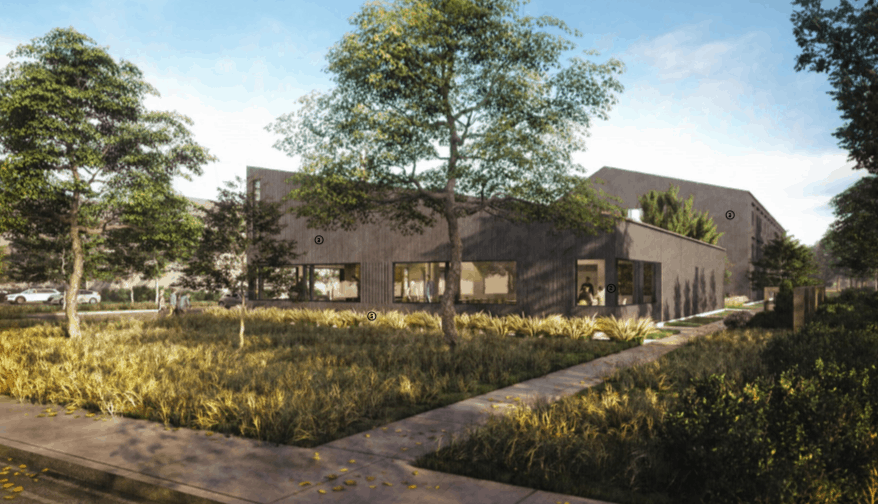Beaverton supportive housing project budget set to nearly double in price
Published May 19, 2022 at 11:38 am

Durham Regional council has decided to nearly double the budget for the Beaverton supportive housing project, with costs ballooning from $13.5 million to more than $25 million.
Council met in a Committee of the Whole meeting on May 11 to discuss the funding boost. A regional staff report found in the meeting agenda calls for an increase of $11,672,010 to the $13,552,990 budget, pushing the new total to $25,225,000 and representing a 86.12 per cent funding increase. It was the only item on the meeting agenda.
Previously the Region funded the project through their Social Housing Reserve Fund, responsible for $7,932,090. This funding was boosted by the Ontario Priorities Housing Initiative which threw in another $5,620,900.
The project has suffered chronic delays caused in part by resistance from some locals to allow the building at all. The Beaverton Supportive House project is designed to place unhoused people into an apartment building with ’round-the-clock care.
The 50 units number also met with pushback, with some in the community of 3,000 feeling felt was too many for the town to take on.
Others, like Dr. Mark Katz, a psychiatrist with extensive experience, expressed concerns about possible adverse health effects for the unit’s residents. These could overdose deaths, physical health emergencies, violence, and stigmatization of clients.
Beaverton’s relative isolation exacerbated all of these concerns. The nearest hospital is 40 km away in Orillia and the town lacks a family doctor and as a result of the public pressure, the Township of Brock passed a by-law blocking construction of any building with a modular design.
The supportive housing unit was based on a modular design to reduce cost and speed construction. Canadian Architect, the preeminent architectural trade magazine in the country, honoured this design with their award of excellence. It was Durham Region’s first win.
The Region ended up suing Brock Township over the ban saying it amounted to “people zoning” the illegal practice of designating land based on who will use it rather what it will be used for.
The Township and the Region eventually settled on an agreement which granted Brock numerous concessions, including increased surveillance on site, a 30/20 split between homeless and improperly housed people, a full-time cop in town, a requirement for residents to engage in services and a family doctor for the town, among others. The bylaw was allowed to expire a year after it was instituted.
Due to this delay, the $5 million from the Province is now set to expire and must be allocated to other projects. However, the Region can still get money from the fourth year of the Priorities Housing Initiative, which will now funds $3,343,000 of the project. Additional financing comes from the Ontario Social Services Relief Fund which is providing more than $6,330,000 to the project. This fund launched in March 2020 to support vulnerable population during the COVID-19 pandemic.
Meanwhile Durham also has a one-time surplus of property taxes from residents. More than $7,300,000 will go into the project from this surplus.
The project is vital to meeting the needs for supportive housing identified in the Durham’s 2019-2028 Housing Forecast. This forecast found a need for 75 new supportive housing units per year just to keep up with growing demand. In order to have even a “marginal impact on need” the Region needs to build 125 units a year per this forecast.
However, the pursuit of these homes as gotten much costlier since the Beaverton project was approved in 2020. As development dragged on the price of lumber alone upped the cost by $2 million.
As Oshawa Mayor Dan Carter noted in the meeting, despite having “a lot of faith” in modular projects like Beaverton’s “what we’ve found is they’re not quick and they’re not affordable any longer. And that’s disappointing to me.”
Pickering Mayor Dave Ryan echoed these concerns saying council was now in a “difficult position.” Despite the cost overruns Uxbridge Mayor Dan Barton stressed the need for the project. “People are sleeping on the street because this isn’t built.”
The issue will take centre stage again May 25 at the next Regional Council meeting.
INdurham's Editorial Standards and Policies





